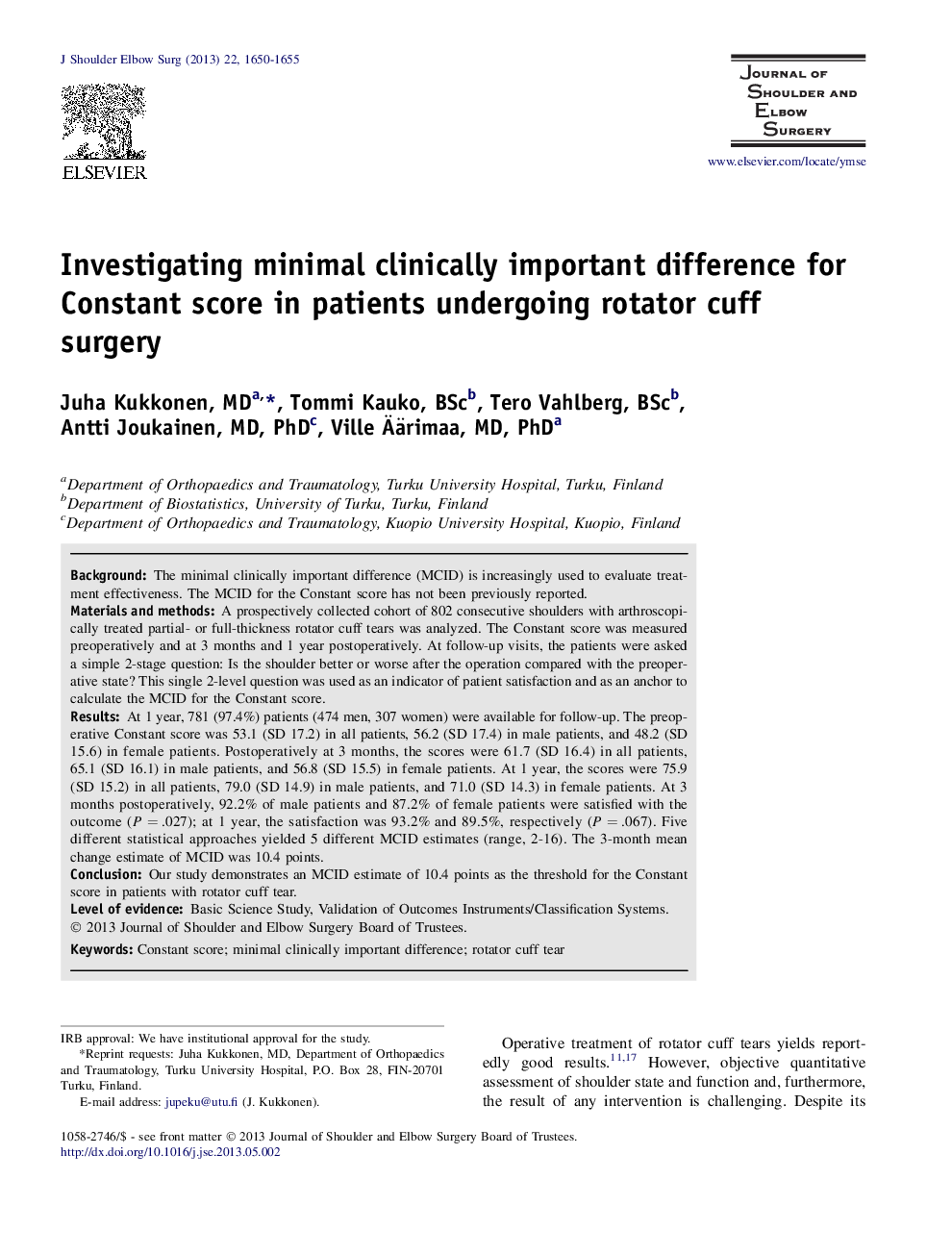| Article ID | Journal | Published Year | Pages | File Type |
|---|---|---|---|---|
| 4073289 | Journal of Shoulder and Elbow Surgery | 2013 | 6 Pages |
BackgroundThe minimal clinically important difference (MCID) is increasingly used to evaluate treatment effectiveness. The MCID for the Constant score has not been previously reported.Materials and methodsA prospectively collected cohort of 802 consecutive shoulders with arthroscopically treated partial- or full-thickness rotator cuff tears was analyzed. The Constant score was measured preoperatively and at 3 months and 1 year postoperatively. At follow-up visits, the patients were asked a simple 2-stage question: Is the shoulder better or worse after the operation compared with the preoperative state? This single 2-level question was used as an indicator of patient satisfaction and as an anchor to calculate the MCID for the Constant score.ResultsAt 1 year, 781 (97.4%) patients (474 men, 307 women) were available for follow-up. The preoperative Constant score was 53.1 (SD 17.2) in all patients, 56.2 (SD 17.4) in male patients, and 48.2 (SD 15.6) in female patients. Postoperatively at 3 months, the scores were 61.7 (SD 16.4) in all patients, 65.1 (SD 16.1) in male patients, and 56.8 (SD 15.5) in female patients. At 1 year, the scores were 75.9 (SD 15.2) in all patients, 79.0 (SD 14.9) in male patients, and 71.0 (SD 14.3) in female patients. At 3 months postoperatively, 92.2% of male patients and 87.2% of female patients were satisfied with the outcome (P = .027); at 1 year, the satisfaction was 93.2% and 89.5%, respectively (P = .067). Five different statistical approaches yielded 5 different MCID estimates (range, 2-16). The 3-month mean change estimate of MCID was 10.4 points.ConclusionOur study demonstrates an MCID estimate of 10.4 points as the threshold for the Constant score in patients with rotator cuff tear.
